آموزش زبان پایه نهم
درس چهارم – خدمات
- مکالمه
- تمرین 1
- تمرین 2
- اصطلاحات جدید
- مکالمه 2
- تلفظ
- گرامر
- مکالمه 3
- تمرین شنیداری
- واژگان
- مونولوگ
- تکلیف
- مطالعه بیشتر
- درس بعد

Tourist: Excuse me sir! Can you help me please?
Pedram: What can I do for you?
Tourist: I want a postcard, an envelope and a stamp.
Pedram: Umm…, you can get them from a post office.
Tourist: Where is the post office?
Pedram: Actually it’s near here. It’s just round the corner.
Tourist: Good! Thank you. What time does it open?
Pedram: It opens at 8.
Tourist: Thanks a lot!
توریست: ببخشید آقا آیا تو می توانی به من کمک کنی؟
پدرام: من چکاری می توانم برای شما انجام دهم؟
توریست: من یک کارت پستال، یک پاکت نامه و یک تمبر می خواهم.
پدرام: آممم شما می توانید آنها را از دفتر پست بخرید.
توریست: دفتر پست کجاست؟
پدرام: درواقع نزدیک اینجاست. درست حوالی پیچ خیابان است.
توریست: خوبه، متشکرم، چه ساعتی باز است؟
پدرام: ساعت 8 باز می شود.
توریست: بسیار متشکرم.
آموزش صحبت درباره خدمات (1)
What is her job?
She’s an employee.
شغل او چیست؟
او کارمند است
Where is the post office?
It’s over there.
اداره پست کجاست؟
آنجاست
Who’s that man?
He is a postman.
آن مرد کیست؟
او مامور پست است
When is the break?
It’s at 9:30.
زنگ تفریح چه وقتی است؟
ساعت 9:30
آموزش صحبت درباره خدمات (2)
What time does it open?
It opens at 8 in the morning.
چه ساعتی باز می شود؟
ساعت 8 صبح باز می شود
When do they work?
They work from Saturday to Wednesday.
چه وقت آنها کار می کنند؟
آنها از شنبه تا چهارشنبه کار می کنند
Who helps lost children?
The police help them.
چه کسی به کودکان گمشده کمک می کند؟
پلیس به آنها کمک می کند
Where does she buy stamps?
She buys them from a post office.
او تمبرها را از کجا می خرد؟
او آنها را از دفتر پست می خرد
Why does he go to work by bus?
Because it’s fast and cheap.
چرا او با اتوبوس سرکار می رود؟
چون سریع و ارزان است
How do you come to school?
I take a bus.
تو چگونه به مدرسه می آیی؟
من با اتوبوس می آیم
call the emergency (115) تماس با ارژانس
get on a bus سوار یک اتوبوس شدن
send an e-mail ارسال یک ایمیل
take out money (ATM) پول کشیدن از خودپرداز
get off a bus پیاده شدن از یک اتوبوس
hire a taxi گرفتن یک تاکسی
open an account باز کردن یک حساب
recharge the E-ticket شارژ مجدد یک بلیط الکترونیکی
ask the information desk پرسیدن از بخش اطلاعات
Clara: Excuse me sir! I’m lost.
Police officer: Don’t worry. What’s your name?
Clara: My name’s Clara.
Police officer: Where do you live?
Clara: On Main Street, near the gas station.
Police officer: Don’t worry. I can take you home.
Clara: Thank you sir.
کلارا: ببخشید آقا من گم شدم.
افسر پلیس: نگران نباشید. اسم شما چیست؟
کلارا: اسم من کلارا است.
افسر پلیس: شما کجا زندگی می کنید؟
کلارا: در خیابان مِین. نزدیک پمپ بنزین.
افسر پلیس: نگران نباشید من می توانم شما را به خانه ببرم.
کلارا: ممنون آقا
1. What’s your name?
2. How old are you?
3. Where do you live?
4. Why are you here?
5. When does it open?
6. Who is that man?
دستور زبان:
Parsa: What’s your favorite job?
Hamid: I like to be a firefighter.
Parsa: What does a firefighter do?
Hamid: He puts out fire and saves people’s lives.
Parsa: And is it an easy job?!
Hamid: No! Actually it’s very hard.
Parsa: When does a firefighter go to work?
Hamid: I think he goes to work on shifts.
Parsa: Oh! Where does he work?
Hamid: At a fire station.
Parsa: Is there a fire station near here?
Hamid: Yes, there’s one over there.
پارسا: شغل مورد علاقه تو چیست؟
حمید: من دوست دارم آتشنشان شوم.
پارسا: کار یک آتشنشان چیست؟
حمید: او آتش را خاموش می کند و جان مردم را نجات می دهد.
پارسا: و آیا این شغل آسانی است؟
حمید: نه در واقع خیلی سخت است.
پارسا: یک آتشنشان چه وقت سر کار می رود؟
حمید: من فکر می کنم او به صورت شیفتی سر کار می رود.
پارسا: او اوکجا کار می کند؟
حمید:در ایستگاه آتشنشانی
پارسا: آیا ایستگاه آتشنشانی نزدیک اینجا وجود دارد؟
حمید: بله یکی آنجا هست؟
1. What does he do?
He is …………………………………… .
2. Where does he work?
He ………………………………………… .
3. When does his work start?
……………………………………………… .
1. What does Amir do?
He is a …………………………………… .
2. Where does he work?
He works at …………………………… .
3. When does he go to work?
He goes …………………………………… .
4. What time does he work?
……………………………………………………… .
کلمات جدید درس 4 انگلیسی پایه نهم:
A lot: بسیار زیاد
Account: حساب
Actually: درواقع
Always: همیشه
Ask: درخواست کردن، سوال پرسیدن
Because: زیرا
Bus: اتوبوس
Cheap: ارزان
Come: آمدن
Corner: گوشه، نبش خیابان
Do: انجام دادن
Employee: کارمند
Envelope: پاکت نامه
E-ticket: بلیط الکترونیکی
Excuse me: ببخشید
Fast: سریع
Favorite: مورد علاقه
Fire: آتش
Fire station: ایستگاه آتشنشانی
Firefighter: آتشنشان
Gas station: پمپ بنزین
Get: خریدن، گرفتن، رسیدن
Get off: پیاده شدن
Get on: سوار شدن
Help: کمک کردن
Hire: گرفتن، کرایه کردن
Information: اطلاعات
Job: شغل
Just: درست، فقط، دقیق
lost: گم شدن
Man: مرد، انسان
Me: به من
Money: پول
Near: نزدیک
Never: هرگز
Often: اغلب
Over there: آنجا
People: مردم، افراد
Post office: اداره پست
Postcard: کارت پستال
Put out: خاموش کردن
Recharge: شارژ مجدد
Round: حوالی، اطراف
Save: نجات دادن
School: مدرسه
Send: فرستادن
Service: خدمات
Shift: شیفت، نوبت
Sometimes: گاهی
Stamp: تمبر
Take: بردن
Take a bus: اتوبوس گرفتن
Take out: بیرون آوردن
The break: زمان استراحت
Them: به آنها
Think: فکر کردن
Usually: معمولا
Wake up: بیدار شدن
Wash: شستن
When: چه وقت
Worry: نگران بودن
معنی عبارتهای آخر کتاب انگلیسی نهم:
ask the information desk: از بخش اطلاعات سوال پرسیدن
bring to the ER: به اورژانس آوردن
call the emergency(115): تماس گرفتن با اورژانس
do voluntary work: انجام دادن کار داوطلبانه
donate blood: اهدای خون
get off a bus: از اتوبوس پیاده شدن
get on a bus: سوار اتوبوس شدن
help charity: کمک کردن به خیریه
hire a taxi: تاکسی گرفتن
keep the city clean: تمیز نگه داشتن شهر
open an account: افتتاح یک حساب بانکی
put out fire: خاموش کردن آتش
recharge your E-ticket: بلیط الکترونیکی خود را شارژ کردن
send an e-mail:ارسال کردن یک ایمیل
take out money from an ATM: پول کشیدن از یک دستگاه خودپرداز
مونولوگ درباره خدمات – درس4 – کتاب نهم
I like to be firefighter. It is my favorite job. Actually this job is very difficult but it is very helpful for people. Firefighter is a kind and brave man. He works in a fire station. He puts out fire and saves people’s lives. He doesn’t go to work every day like other employees. He goes to work on shifts.
But my father is a postman. He works in a post office. He goes to work every day morning and comes back home in the afternoon. In the post office they buy stamps, postcards, envelopes. They help you to send your letters and gifts to your family and friends.
تکلیف:
لطفا از روی جملات و مکالمه بالا بخوانید، صدای حود را ضبط کنید و از طریق تلگرام برای ما ارسال بفرمایید.
از روی هر جمله هم یکبار با خط زیبا بنویسید.
مطالعه بیشتر:
آموزش آسان و رایگان زبان انگلیسی – درس چهاردهم
کلمات زیر را به خاطر بسپارید
Do انجام دادن
water آب
Doing در حال انجام دادن
homework تکلیف
Drink نوشیدن
speaking در حال صحبت کردن
Drinking در حال نوشیدن
English انگلیسی
Listening to در حال گوش دادن به
who چه کسی
او حالا مشغول انجام چه کاری است؟
او اکنون مشغول بازی کردن است.
او حالا مشغول انجام چه کاری است؟
او اکنون مشغول خوردن یک سیب است.
آنها اکنون مشغول انجام چه کاری هستند؟
آنها اکنون مشغول نوشیدن آب هستند.
او حالا مشغول انجام چه کاری است؟
او در حال انجام تکالیفش است.
علی اکنون مشغول انجام چه کاری می باشد؟
او اکنون مشغول خواندن قرآن است.
پروین در حال انجام چه کاری می باشد؟
او مشغول خواندن نماز است.
آنه مشغول انجام چه کاری هستند؟
آنها حالا در حال صحبت کردن هستند.
آنها در حال صحبت کردن انگلیسی هستند.
او حالا مشغول انجام چه کاری است؟
او در حال گوش کردن به معلم است.
چه کسی حالا در حال نوشیدن آب است؟
احمد الان مشغول نوشیدن آب است.
چه کسی حالا مشغول خوردن ناهار است؟
دختر در حال خوردن ناهار است.
چه کسی در حال بازی کردن است؟
پسرها حالا مشغول بازی کردن هستند.
چه کسی مشغول گوش دادن به معلم است؟
دانش آموزان مشغول گوش کردن به معلم هستند.
1- What is he doing?
He is playing now.
2- What is she doing now?
She’s eating an apple.
3- What are they doing now?
They’re drinking water now.
4- What is she doing now?
She’s doing her homework.
5- What is Ali doing now?
He is reading the Koran now.
6- What is parvin doing?
She is praying.
7- What are they doing?
They are speaking now.
8- What is she doing now?
She is listening to the teacher.
9- Who is drinking water now?
Ahmad is drinking water now.
10- Who is eating lunch now?
The girl is eating lunch now.
11- Who is playing now?
The boys are playing now.
12- Who is listening to the teacher?
The students are listening to the teacher.
- *لطفا تمامی جملات انگلیسی بالا را با صدای خودتان بخوانید و در تلگرام به پشتیبان زبان ارسال نمایید. این خدمات رایگان است/.
- نوشتن از روی جملات و تمرین املا نیز برای بعضی از زبان آموزان مفید می باشد. می توانید تصویر املای خود را نیز ارسال نمایید.
- *ارتباط با پشتیبان سایت در تلگرام
تمرینات درس چهاردهم
نکته دستوری:
برای سئوالی کردن جملات استمراری با کلمه what بایستی این کلمه در ابتدای جمله بکار رفته و سپس به جای فعل کمکی(am-is-are) با فاعل عوض شده و فعل اصلی جمله را که ing دارد تبدیل به doing بنمائید:
مثال:
آنها اکنون مشغول صحبت هستند.
آنها اکنون مشغول چه کاری هستند؟
They are speaking now. (What)
What are they doing now?
و چنانچه بخواهیم جمله را با کلمه who (چه کسی) سئوالی کنیم این کلمه مستقیماً جای فاعلجمله را گرفته و بقیه جمله نوشته می شود و فقط یک علامت سئوال در انتهای جمله گذارده می شود:
مثال:
علی مشغول انگلیسی صحبت کردن است.
چه کسی مشغول انگلیسی صحبت کردن است؟
Ali is speaking English.
Who is speaking English?
الف- به سئوالی تبدیل کنید:
A-Change into the questions:
1- Mahin is eating lunch now. (Who)
Who is eating lunch now?
2- We are speaking English now. (Who)
Who is speaking English now?
3- My sister is drinking water now (who)
Who is drinking water now?
4- Freshet is walking now. (Who)
Who is walking now?
5- Ali is doing his homework. (Who)
Who is doing his homework?
6- I am reading a book now. (Who)
Who is reading a book now?
7- They are listening to the teacher now. (What)
What are they doing now?
8- You are going to school now. (What)
What are you doing now?
9- Her brother is cleaning the blackboard now. (What)
What is her brother doing now?
10- We are sitting in the classroom now. (What)
What are we doing now?
- *لطفا تمامی جملات انگلیسی بالا را با صدای خودتان بخوانید و در تلگرام به پشتیبان زبان ارسال نمایید. این خدمات رایگان است/.
- نوشتن از روی جملات و تمرین املا نیز برای بعضی از زبان آموزان مفید می باشد. می توانید تصویر املای خود را نیز ارسال نمایید.
- *ارتباط با پشتیبان سایت در تلگرام
ب- جملات زیر را بخوانید:
B- Read these sentences:
Mansour and Maryam
1- This is Mansour
2- she is Maryam.
4- Maryam has an orange.
5- They are playing in the garden.
6- She is drinking water.
7- Mansour is washing his hands.
8- She is doing her homework.
10- She is praying.
الف- به سئوالی تبدیل کنید:
A-Change into questions:
Example:
It is a chair.
Is it a chair?
1- There is an apple under the table.
Is there an apple under the table?
2- Those are your face, your hair and your head.
Are those your face, your hair and your head?
3- There are boys and girls in the classroom.
Are there boys and girls in the classroom?
4- We are reading the Koran now.
Are we reading the Koran now?
5- He is cleaning the blackboard now.
Is he cleaning the blackboard now?
ب- با کلمه”what” تبدیل به سئوالی کنید:
B-change into the questions with “what”
Example:
He is reading.
What is he doing?
1- He is listening.
1- What is he doing?
2- She is drinking water.
2- What is she doing?
3- We are opening the windows.
3- What are we doing?
4- They are praying now.
4- What are they doing?
5- I am washing my hands now.
5- What am I doing?
- *لطفا تمامی جملات انگلیسی بالا را با صدای خودتان بخوانید و در تلگرام به پشتیبان زبان ارسال نمایید. این خدمات رایگان است/.
- نوشتن از روی جملات و تمرین املا نیز برای بعضی از زبان آموزان مفید می باشد. می توانید تصویر املای خود را نیز ارسال نمایید.
- *ارتباط با پشتیبان سایت در تلگرام
ج- با “who” سئوال کنید:
C-Ask questions with “Who”:
Example:
They are going to school.
Who is going to school?
1- Ali is eating lunch now.
Who is eating lunch now?
2- You are listening to the teacher.
Who is listening to the teacher?
3- We are drinking water.
Who is drinking water?
4- I am doing my homework.
Who is doing my homework?
5- The boys are speaking English.
Who is speaking English?
- *لطفا تمامی جملات انگلیسی بالا را با صدای خودتان بخوانید و در تلگرام به پشتیبان زبان ارسال نمایید. این خدمات رایگان است/.
- نوشتن از روی جملات و تمرین املا نیز برای بعضی از زبان آموزان مفید می باشد. می توانید تصویر املای خود را نیز ارسال نمایید.
- *ارتباط با پشتیبان سایت در تلگرام
د-کوتاه و کامل پاسخ دهید:
D- Give short and complete answers:
Example:
Is there a pen on the book? (Yes)
Yes, there is. There is a pen on the book.
1- Is she a woman? (Yes)
Yes, she is a woman.
2- Are there benches in the classroom? (Yes)
Yes, there are benches in the classroom.
3- Am I opening your mouth? (No)
No, you are not opening my mouth.
4- Are they playing in the garden? (Yes)
Yes, they are playing in the garden.
5- Does he have a pen and a pencil? (No)
No, he doesn’t have a pen and a pencil.
- *لطفا تمامی جملات انگلیسی بالا را با صدای خودتان بخوانید و در تلگرام به پشتیبان زبان ارسال نمایید. این خدمات رایگان است/.
- نوشتن از روی جملات و تمرین املا نیز برای بعضی از زبان آموزان مفید می باشد. می توانید تصویر املای خود را نیز ارسال نمایید.
- *ارتباط با پشتیبان سایت در تلگرام
آموزش آسان و رایگان زبان انگلیسی – درس شانزدهم
قبل از شروع این لغات را یاد بگیرید:
Where کجا
hungry گرسنه
Near نزدیک
women زنها-زنان
Tea چای
thirsty تشنه
At the table پشت میز
happy خوشحال
Men مردها-مردان
mosque مسجد
خودکارها کجاهستند؟
آنها روی میز تحریر هستند.
دانش آموزان کجا هستند؟
آنها در داخل باغ هستند.
صندلی ها کجا هستند؟
آنها نزدیک میز هستند.
دختر کجاست؟
او داخل کلاس است.
آنها کجا مشغول نماز خواندن هستند؟
آنها در مسجد در حال نماز خواندن هستند.
او کجا مشغول نوشیدن چای است؟
او مشغول نوشیدن چای در پشت میز است.
او کجا مشغول انجام تکالیفش می باشد؟
او در پشت میز مشغول انجام تکالیفش است.
بچه ها مشغول خوردن هستند.
آنها گرسنه هستند.
خانمها در حال نوشیدن آب هستند.
آنها تشنه هستند.
بچه مشغول بازی کردن هستند.
آنها خوشحال هستند.
مردها در حال قدم زدن هستند.
حالشان خیلی خوب است.
1- Where are the pens?
They are on the desk.
2- Where are the students?
They are in the garden.
3- Where are the chairs?
They are near the table.
4- Where is the girl?
She is in the classroom.
5- Where are they praying?
They are praying in the mosque.
6- Where is she drinking tea?
She is drinking tea at the table.
7- Where is he doing his homework?
He is doing his homework at the table.
8- The boys are eating.
They are hungry.
9- The women are drinking water.
They are thirsty.
10- The boys are playing.
They are happy.
11- The men are walking.
They are very well.
- *لطفا تمامی جملات انگلیسی بالا را با صدای خودتان بخوانید و در تلگرام به پشتیبان زبان ارسال نمایید. این خدمات رایگان است/.
- نوشتن از روی جملات و تمرین املا نیز برای بعضی از زبان آموزان مفید می باشد. می توانید تصویر املای خود را نیز ارسال نمایید.
- *ارتباط با پشتیبان سایت در تلگرام
ادامه آموزش آسان و رایگان زبان انگلیسی – درس شانزدهم
الف- سوالات را پاسخ دهید:
حالا کجا می روید؟
من حالا در حال رفتن به مدرسه هستم.
A- Answer the questions:
Example:
Where are you going now?
I’m going to school now.
1- Where are you sitting now?
1-I’m sitting in the classroom.
2- Where is the box? (Under…)
2- it’s under the table.
3- Is the boy hungry?
3- Yes, he is hungry.
4- Who is listening to the teacher now?
4- Ali is listening to the teacher.
5- What is there on the wall? (Picture)
5- there is a picture on the wall.
6- Where is your book?
6- My book is on the table.
7- Is your father happy?
7- Yes, my father is happy.
8- What are you?
8-I am a teacher.
9- Who are you?
9-I am Ali Mehrabi.
10- Where are they praying?
10- They are praying in the mosque.
11- What are those women reading?
11- They are reading the Koran.
12- Are the men very well?
12- Yes, they are very well.
13- Do you have two eyes and two ears?
13- Yes, I have two eyes and two ears.
14- What is your mother doing at the table?
14- She is cleaning the table.
15- Where is she going now? (The mosque)
15- she is going to the mosque.
- *لطفا تمامی جملات انگلیسی بالا را با صدای خودتان بخوانید و در تلگرام به پشتیبان زبان ارسال نمایید. این خدمات رایگان است/.
- نوشتن از روی جملات و تمرین املا نیز برای بعضی از زبان آموزان مفید می باشد. می توانید تصویر املای خود را نیز ارسال نمایید.
- *ارتباط با پشتیبان سایت در تلگرام
ب- با who-what- where سوالی کنید:
نکته دستوری:
در مورد دو کلمه what و who که جمله را سوالی می کنند قبلاً توضیحات لازم داده شده است آنچه بایستی در این درس بیاموزید کلمه سوالی where(کجا) می باشد. زمانی از این کلمه استفاده می شود که مکان مجهول باشد. بنابراین اگر قرار باشد جمله ای را که مکان در آن وجود دارد با کلمه سوالی where به صورت سوالی بنویسیم بایستی مکان آن جمله حذف شود.
مثال:
او روی صندلی نشسته است.
او کجا نشته است؟
B-Ask questions with: who, what, where:
He is sitting on the chair.
Where is he sitting?
1- She is Maryam. (Who)
Who is she?
2- She is a teacher. (What)
What is she?
3- The boy is very well. (Who)
Who is very well?
4- I am going to school. (Who)
Who is going to school?
5- I am going to school. (Where)
Where am I going?
6- He is walking (who)
Who is walking?
7-Mr.Javan is praying in the mosque. (Who)
Who is praying in the mosque?
8- Mr.Javan is praying in the mosque. (What)
What is Mr. Javan doing in the mosque?
9- Mr.Javan is praying in the mosque (where)
Where is Mr.Javan praying?
10-they are lips. (What)
What are they?
11-the blackboard is near the wall. (Where)
Where is the blackboard?
12- The men are happy. (Who)
Who is happy?
13- I am doing my homework now. (What)
What am I doing now?
14- A man has a body and a head. (Who)
Who has a body and a head?
15- Parvin and Parviz are very thirsty. (Who)
Who is very thirsty?
- *لطفا تمامی جملات انگلیسی بالا را با صدای خودتان بخوانید و در تلگرام به پشتیبان زبان ارسال نمایید. این خدمات رایگان است/.
- نوشتن از روی جملات و تمرین املا نیز برای بعضی از زبان آموزان مفید می باشد. می توانید تصویر املای خود را نیز ارسال نمایید.
- *ارتباط با پشتیبان سایت در تلگرام









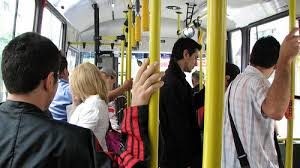
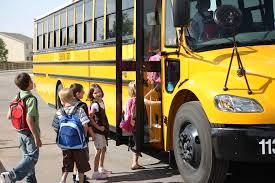


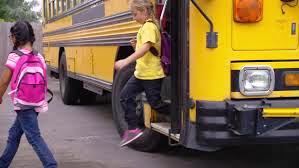
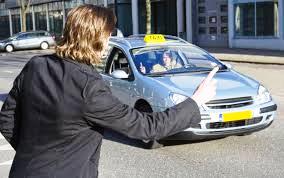

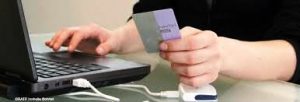
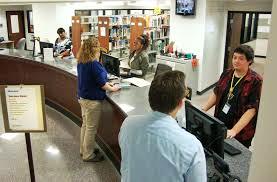
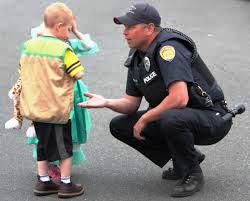







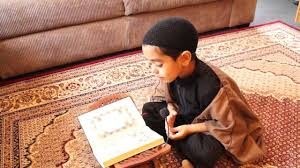








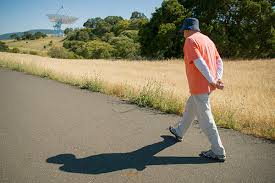



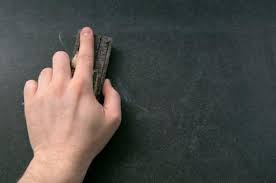







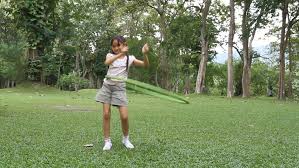
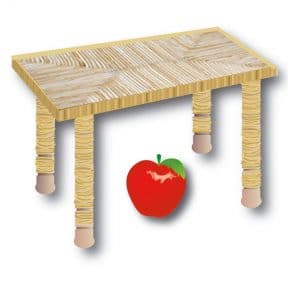

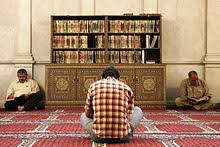

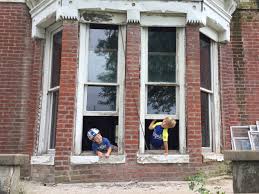








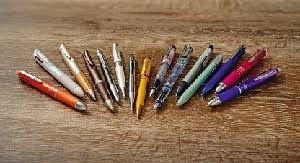


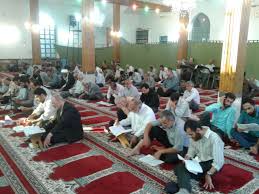



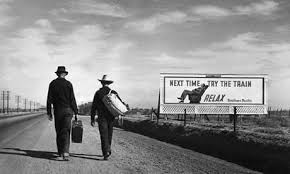




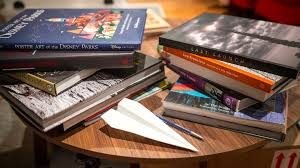
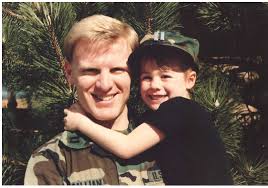
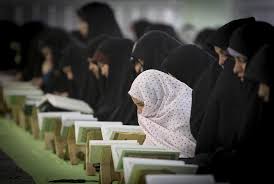





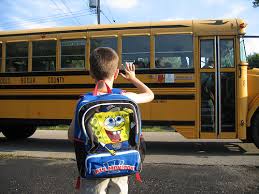


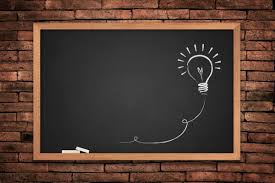

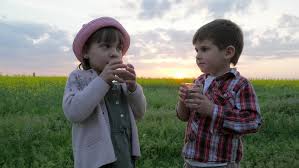
عالیییییییییییی با طعم پرتقالی
It,s great
ن بابا?
عالی بود ممنان????
بد
چرا؟؟
خیلی عالی بود مرسی از زحماتتون thank youuuuuu
بخش گرامر اصلا خوب نبود چون معنی نثا هارو نداشت
سلام زبان:
ممنون از نظر شما. بررسی میشود.
عاشق سایتتون شدم
دروغ میگی??♂️
بابا ۳۰ سالتم باشه بازم لازمته با این برنامه نمره ام از ۱۹ پایین تر نیست
خوب بود ولی من هیچی نفهمیدم ??
دقیقا همینه?
بی نظیره سه ساله دارم از این سایت کمک می گیرم و به لطف این برنامه نمرات خوبی در این درس می گیرم
خدا رو شکر، تلاش می کنیم مطالب عالی تر بشن، شما هم با نقد و پیشنهادات تون به ما کمک کنید
MAIN STREET به معنای خیابان اصلی است
درسته main به معنی اصلی اما چون با حرف بزرگ نوشته شده اسم خاص است و می شه اون رو معنی نکرد و فقط همون تلفظش رو نوشت
هههههه فکر کردم طعمش سیبه
خیلی خوبه من واقعا لذت بردم خیلی کوتاه و مفید هرچیزی لازم داشتم بود دستتون درد نکنه واقعا عالیییی ?
عالی بود ممنون
Thank you?
عالی سپاس گذارم
Thank you?
بسیار ممنون از بدمینتون
Thank you??????
Thank you??????
بد نبود ولی در حد good
کمبودهاش از نظر شما چی بود؟
تلفظ مکالمه سه دروس رو نداشت
عالی عالی دستتون درد نکنه
you are saves my lives
very gerat
سلام و خسته نباشید عالی بود ولی لطفا قسمت مونولوگ رو تلفظش هم بذارید ممنونم
حتما این کار رو انجام خواهیم داد
خییییییییییییلی ممنون بابت این سایت عالیتون 🙂
لطف دارید
مرسیدمتون گرم خیلی عالی بود!!??
سایت درسی مفیدی هست.ممنون
سایت عالیی دارین